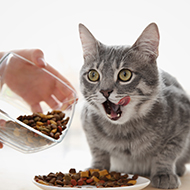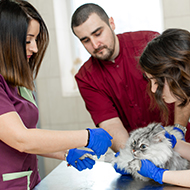The role of vets and nurses in raising awareness
The impact of common pet parasite Toxocara on human health was discussed at a recent CPD day, which championed the role of the vet.
Held by the European Scientific Counsel for Companion Animal Parasites (ESCCAP), the event highlighted strong links between the worm and common health issues in humans.
During the event, discussions were centred around numerous studies which have linked Toxocara to conditions such as asthma, allergies, epilepsy and even learning difficulties.
Speaker and ESCCAP chairman, Maggie Fisher, highlighted one study which involved 425 children with a persistent cough and 1600 children who were not displaying symptoms as a control group.
The findings from this study show that 32 per cent of the children with a cough tested positive for Toxocara antibodies, compared to 17 per cent of the control group.
Furthermore, Maggie pointed towards a US study which suggested a link between the worm and reduced cognitive function in children.
In this study, children testing positive for antibodies to the parasite scored far lower on both verbal and manual tests, as well as maths and reading tasks.
Interestingly, Maggie noted, studies also indicate an indefinite or non-existent link between pet ownership and increased risk of toxocara infection, suggesting the highest risk is from the environment.
Maggie explained that as toxocara eggs can take weeks to become infectious after being passed in the animal's stools, worming and picking up waste is essential to reducing these environmental risks.
Commenting on the role of veterinary professionals, Maggie said: "Vets, nurses and SQPs are perfectly placed to make sure that pet owners are aware of the risks and take precautions to protect themselves and the wider general public."
Image: Colour electron scanning microscope image of unhatched Toxocara Canis egg © Bayer Animal Health






 Birmingham Dogs Home has issued an urgent winter appeal as it faces more challenges over the Christmas period.
Birmingham Dogs Home has issued an urgent winter appeal as it faces more challenges over the Christmas period.
